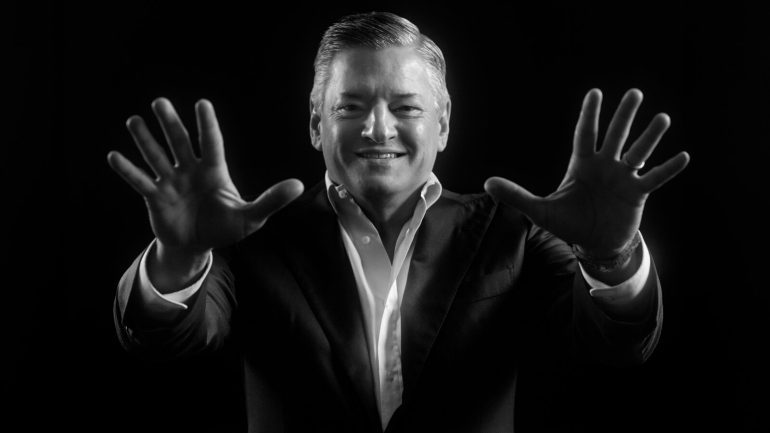- Netflix co-CEO Ted Sarandos reassures about AI’s impact on Hollywood jobs in an interview with The New York Times.
- Sarandos emphasizes human creativity, downplaying AI’s ability to outperform professionals like screenwriters.
- He sees AI as a complementary tool for enhancing creative processes, rather than a threat to job security.
- Sarandos draws parallels to past technological advancements in entertainment, suggesting AI will empower professionals.
- Filmmaker James Cameron echoes skepticism about AI’s creative capabilities, emphasizing the importance of human experience in storytelling.
Main AI News:
In a recent interview with The New York Times, Netflix co-CEO Ted Sarandos expressed confidence in the resilience of human creativity in the face of AI advancements in Hollywood. Sarandos downplayed concerns that AI platforms might supplant professions such as screenwriting, asserting his belief in the unique abilities of human writers and performers.
Sarandos emphasized, “I have more faith in humans than that. I really do. I don’t believe that an AI program is going to write a better screenplay than a great writer, or is going to replace a great performance, or that we won’t be able to tell the difference. AI is not going to take your job. The person who uses AI well might take your job.”
He framed AI as a complementary tool rather than a disruptive force, stating, “AI is a natural kind of advancement of things that are happening in the creative space today, anyway.“
Drawing parallels to historical technological advancements in the entertainment industry, Sarandos likened the integration of AI to previous innovations like volume stages and computer-generated animation. He suggested that AI would empower professionals to enhance their craft and bring previously unimaginable visions to the screen.
Sarandos’ perspective echoes sentiments expressed by acclaimed filmmaker James Cameron, who similarly questioned the creative capabilities of AI bots. Cameron emphasized the intrinsic humanity required in crafting compelling narratives, casting doubt on the potential of AI to evoke genuine emotional responses from audiences.
Cameron remarked, “You have to be human to write that. I don’t know anyone that’s even thinking about having AI write a screenplay.”
While acknowledging the rapid pace of technological evolution, both Sarandos and Cameron maintain a cautious stance, skeptical of AI’s ability to replicate the nuanced complexities of human storytelling. However, they remain open to the possibility of AI playing a meaningful role in the creative process, provided it can demonstrate genuine innovation and emotional resonance.
Conclusion:
The perspectives shared by Netflix’s Ted Sarandos and filmmaker James Cameron reflect a cautious optimism regarding the integration of AI in the entertainment industry. While acknowledging its potential as a tool for innovation, they underscore the irreplaceable role of human creativity and experience in crafting compelling narratives. This nuanced approach suggests that while AI may augment creative processes, its widespread adoption is unlikely to result in the displacement of Hollywood professionals.

